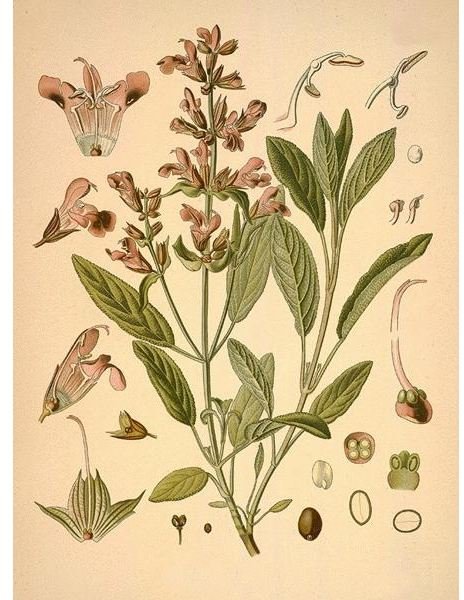Learn the Health Benefits of Sage Tea
Sage Tea
Sage (salvia) means “to heal” in Latin and has been used over many years to treat virtually every ailment. Sage is a member of the mint family and is native to regions surrounding the Mediterranean Sea.
In 2001, sage was awarded the “Herb of the Year” by the International Herb Association.
Health Benefits of Sage Tea
• In one study[1], sage was shown to manage mild to moderate Alzheimer’s disease and may also reduce agitation.
• Sage tea can reduce secretions of the sweat glands and is said to prevent night sweats associated with menopause and tuberculosis.
• Sage is an antispasmodic, thus making it a wonderful herbal remedy in helping digestive disorders and quieting nerves.
• Sage tea has an estrogenic effect and is believed to cure leukorrhea (sticky, white vaginal discharge), amenorrhea (absence of menses), and dysmenorrhea (painful menstruation). Requires more investigation.
• Sage has antibacterial, antiviral, and antifungal properties. It is used for almost any type of infection or inflammation.
Preparing Sage Tea
Preparing sage tea with fresh or dried leaves:
- add 10 large, fresh sage leaves, or 1 teaspoon of dried sage, to a cup of hot water
- steep (covered) for about 10 minutes
- strain
- can add sugar or honey to sweeten.
You can drink the tea hot or cold. To stop night sweats, you will want to drink it cold.
You can also get the health benefits of sage tea by gargling with it or using it as a mouthwash to treat irritations and inflammations of the mouth and throat.
To store fresh sage, wrap the leaves in a damp paper towel, place in a plastic bag, and keep in the refrigerator. This will keep it fresh for a few days.
References
[1] J Clin Pharm Ther 28 (1): 53–9
Disclaimer
Please read this disclaimer regarding the information contained within this article.
This post is part of the series: Tea Benefits
Health benefits of herbal teas.
